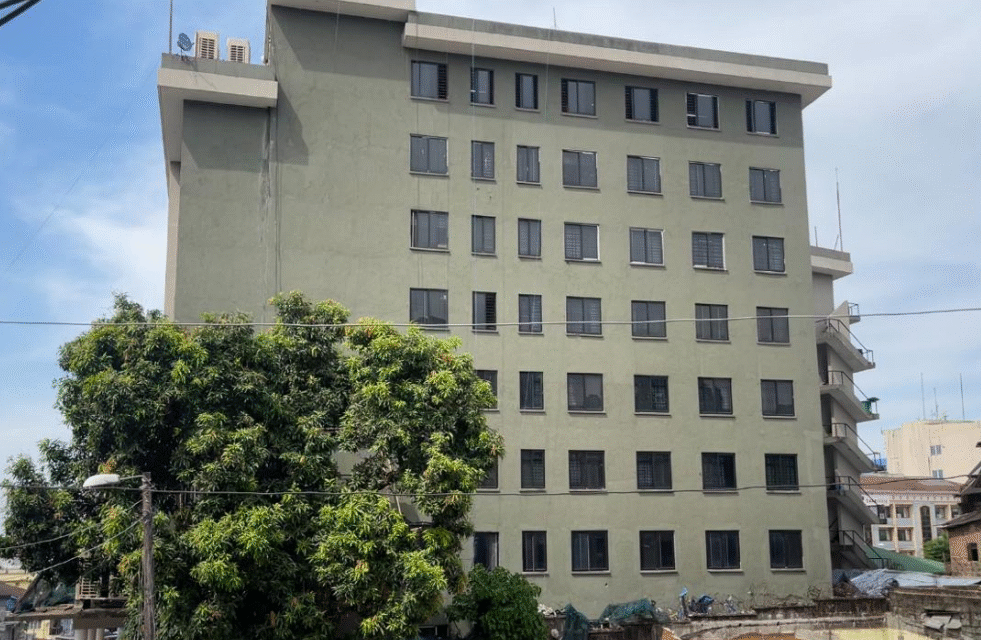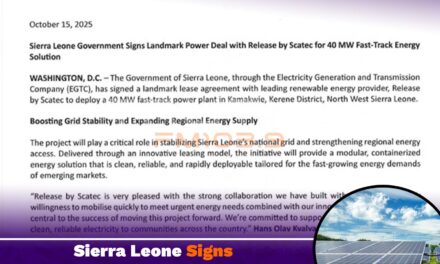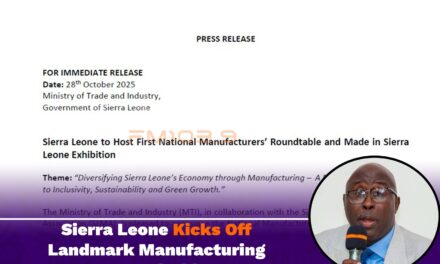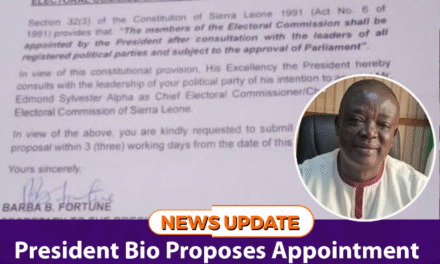Freetown, 18th August 2025 – Sierra Leone’s national electricity utility, the Electricity Distribution and Supply Authority (EDSA), is hovering on the brink of financial collapse, with staggering revenue losses and collection inefficiencies threatening its ability to power the nation, according to new data highlighted in the World Bank’s June 2025 Country Economic Memorandum.
EDSA is currently losing 75% of its potential revenue, a consequence of two critical weaknesses: technical and commercial losses estimated at 50% and a low collection rate of just 76%. In real terms, this means that for every 10 units of electricity purchased by EDSA, only three are successfully billed and paid for, while the rest are either lost in transmission or remain uncollected due to poor billing systems and customer non-compliance.
Sierra Leone’s 50% energy loss rate is nearly five times higher than the Sub-Saharan Africa average of 13%, making it one of the least efficient power utilities in the region. The financial hemorrhage has left EDSA unable to meet its operational costs, forcing the government to pick up the slack.
In 2023 alone, the Government of Sierra Leone (GoSL) pumped over US$36 million into electricity subsidies, amounting to 7% of total government expenditure. This heavy fiscal burden was further exacerbated by rising oil prices following Russia’s invasion of Ukraine, given the country’s dependence on expensive heavy fuel oil (HFO) for power generation.
According to the World Bank, EDSA’s operational inefficiencies are not just a utility problem—they are a macroeconomic crisis in disguise. The unreliability and high cost of electricity are forcing firms to rely heavily on generators, cutting into profits and stifling job creation.
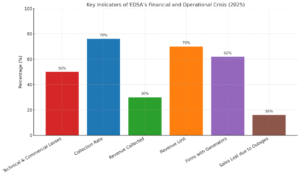
Over 62% of firms in Sierra Leone own private generators, which they depend on for more than 25% of their power needs. Frequent outages, result in losses of up to 16% in annual sales, four times higher than the Sub-Saharan Africa average of 4%.
“The unreliability and high cost of power is forcing firms to operate below capacity, driving up operational costs and reducing competitiveness. Addressing electricity access and reliability is not just about energy, it is central to Sierra Leone’s path to middle-income status.” The World Bank warns.
The Bank is calling for urgent reforms across the electricity value chain, particularly in cost recovery, distribution efficiency and governance. Without bold action, EDSA’s structural weaknesses will continue to undermine Sierra Leone’s ambitions for industrial growth, job creation and sustainable development.
With the electricity sector consuming a growing share of the national budget and delivering shrinking returns, the government faces a difficult but essential choice: either reform and invest in sustainable infrastructure or risk watching the country’s development prospects dim under the weight of an outdated and dysfunctional power system.
As Sierra Leone looks to transition from fragility to resilience, fixing the power sector may prove to be the country’s most urgent and foundational reform.
